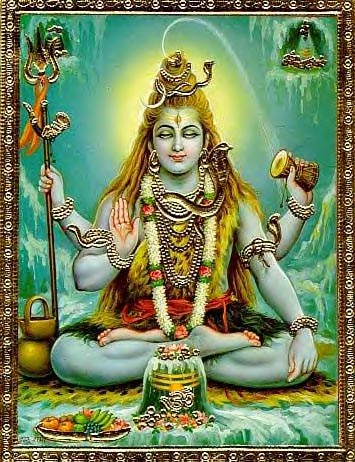Shiva
Latest revision as of 16:17, 5 August 2008
Shiva (pronunciation: [ʃɪ.ʋə]; Sanskrit: शिव, Śiva, lit. "Auspicious one") is the supreme God in the Shaiva tradition of Hinduism. In the panchadeva system of the Smartha tradition, Shiva is one of the five equal bonafide scripture-sanctioned forms of God.
Followers of Hinduism who focus their worship upon Shiva are called Shaivites or Shaivas (Sanskrit Śaiva).[3] His role as the primary deity of Shaivism is reflected in his epithets Mahādeva ("great god"; mahā = great + deva = god), Maheśhvara ("great lord"; mahā = great + īśhvara = lord), and Parameśhvara ("Supreme Lord").Shaivism, along with Vaiṣṇava traditions that focus on Vishnu, and Śākta traditions that focus on the goddess (Devī) are three of the most influential denominations in Hinduism.
Shiva is usually worshipped as the Shiva linga. In images, he is generally represented as immersed in deep meditation or dancing the Tandava upon the demon of ignorance in his manifestation of Nataraja, the lord of the dance. Shiva is one of the six primary forms of the Divine in Smartism, a denomination of Hinduism that puts particular emphasis on six deities, the other five being Vishnu, Shakti, Ganesha, Kartikkeya and Surya.
In some other Hindu denominations, Brahma, Vishnu, and Shiva represent the three primary aspects of the divine in Hinduism and are collectively known as the Trimurti. In this school of religious thought, Brahma is the creator, Vishnu is the maintainer or preserver, and Shiva is the destroyer or transformer.
This site costs a lot of money in bandwidth and resources. We are glad to bring it to you free, but would you consider helping support our site by making a donation? Any amount would go a long way towards helping us continue to provide this useful service to the community.
Click on the Paypal button below to donate. Your support is most appreciated! |
|---|



